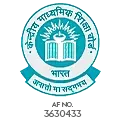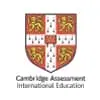Parents have a wide range of educational curricula to choose from in today’s world. The 2 most popular international curricula are the International Baccalaureate (IB) and the International General Certificate of Secondary Education (IGCSE). While both focus on holistic education for children and the development of students into well-rounded individuals, they have distinct differences in terms of assessment methods, teaching styles and learning objectives. Read on to explore the differences to help you decide which curriculum can be the best fit for your child.
IB (International Baccalaureate) Overview
The IB Board is a globally recognized curriculum that is designed to develop inquisitive, knowledgeable and caring young individuals. It was founded in 1968 and is now offered in over 5000 schools across 150+ countries. This programme encourages students to think critically and solve complex problems while explaining concepts in real-world contexts.
IB Programmes
The IB curriculum is unique in that is offers a continuum of education with 4 distinct programmes tailored to different age groups:
- Primary Years Programme (PYP): For students aged 3 – 12, focusing on their all-round development.
- Middle Years Programme (MYP): For students aged 11 – 16, encouraging practical connections between students and the real world.
- Diploma Programme (DP): For students aged 16 – 19, offering a wide and more challenging curriculum that prepares them for college.
- Career-related Programme (CP): For students aged 16 – 19, designed for career-specific learning alongside academic studies.
IB Curriculum
The IB curriculum is inquiry-based and learner-centric. It emphasizes interdisciplinary learning, critical thinking and the development of a global mind. Students are encouraged to engage in research projects, community service and internships to apply their learning in real-world scenarios.
IB Syllabus
The IB syllabus is broad and consists of 6 subject groups: language and literature, language acquisition, individuals and societies, the arts, sciences and mathematics. Students also complete a core component, including an extended essay, theory of knowledge (TOK) and creativity, activity, and service (CAS).
IGCSE (Cambridge) Overview
Another globally acknowledged curriculum, the IGCSE programme was developed by the University of Cambridge in 1988. It is designed for students aged 14-16 and offered in thousands of schools across 140 countries. The curriculum advocated a more traditional and exam-based approach, making it a brilliant foundation for further academic studies such as A-Levels, the IB diploma or other national education systems.
IGCSE (Cambridge) Curriculum
This IGCSE curriculum is flexible and caters to a wide range of students with various abilities. It offers over 70 subjects structured to provide students with a strong academic foundation. It also allows schools to tailor learning experiences based on their students’ needs and interests. Though content-heavy, the programme promotes analytical and application-based thinking.
IGCSE (Cambridge) Syllabus
The IGCSE syllabus includes core subjects such as English, Mathematics and Science, as well as a wide array of elective subjects in the humanities, languages and creative disciplines. Students are mainly assessed through written examinations while some subjects have practical assignments as well.
Key differences between IB & IGCSE
While both IB and IGCSE are internationally recognised, they do have some significant differences: –
Approach to Learning
- IB: Encourages a holistic and inquiry-based approach with a focus on critical thinking and global citizenship.
- IGCSE: Emphasises exam-based learning with a structured and content-rich curriculum.
Assessment Methods
- IB: Conducts assessments through coursework, internal tests and final exams. They encourage creativity and independent thought.
- IGCSE: Primarily uses exams at the end of term or school year, though the subjects include coursework or practical assessments.
Curriculum
- IB: Offers a broader curriculum with a balance between academic studies and extracurricular activities such as CAS.
- IGCSE: Provides a more flexible choice of subjects which allows students to specialize in their areas of interest.
Global Recognition
- IB: Is highly recognized by top universities worldwide for its rigorous academic and extracurricular components.
- IGCSE: is well regarded globally, particularly in countries that follow the British education system.
IB & IGCSE in India
Both these curricula in India are widely available in global and international schools. Each curriculum offers students opportunities to develop qualifications that are of global standards and are valuable for higher education, both in India and abroad.
Choosing the best Cambridge School in Hyderabad – The Premia Academy
When it comes to choosing between IB and IGCSE, the final decision depends upon the child’s learning style, interests and long-term academic goals. Both curricula offer excellent educational pathways.
At The Premia Academy, one of the best Cambridge schools in Attapur, the IGCSE curriculum is offered to balance academics with personal growth. The holistic approach ensures that students flourish academically as well as hone vital life skills.






